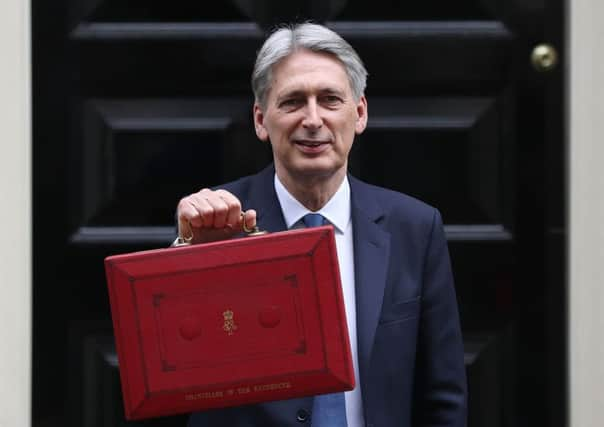Francis Greene: Broken tax system is costing us billions
This article contains affiliate links. We may earn a small commission on items purchased through this article, but that does not affect our editorial judgement.


Case in point – personal taxation, or more exactly national insurance contributions for the self-employed. Hammond found himself hamstrung by his own party’s manifesto commitment not to increase working taxes.
Advertisement
Hide AdAdvertisement
Hide AdHe was also wary of his own backbenchers. For them, the modest increase in National Insurance was nothing more than a tax on aspiration and a thumb of the nose to the upwardly mobile and job-creators. While on the opposite side of the Commons, it signalled an attack on those already trapped in the low-paid, precarious work statistics show is leading to longer hours and less security for workers across Europe.
Thinking better of it, the Chancellor took the easy – if somewhat embarrassing – way out, via a hasty U-turn. Leaving tax reform to Royal Society of the Arts chief executive Matthew Taylor’s review of modern employment practices.
With some 40 per cent of the UK’s job growth in the last eight years coming from a rise in self-employment, there remain legitimate concerns that the gig economy is hollowing out the tax base and threatening public services.
As the Taylor review roadshow lands in Glasgow next week, attention will focus on whether there are any signs of the bold and radical change needed.
Because it’s not only the Uber drivers and Deliveroo workers we’re talking about here – across Europe there has also been a significant rise in self-employment among highly-qualified professionals.
Tellingly, one recent study of Greek accountants, lawyers, doctors and dentists found that if these professionals had declared their true income, the country’s deficit would be around €30 billion lower. Meanwhile, euphemistically called “errors in record-keeping” cost HMRC an estimated £1bn a year through under-reporting. And that’s just the tip of the iceberg.
In my own evidence to another recent review by the European Commission and Organisation for Economic Cooperation & Development, I found two key characteristics of this changing nature of work.
Advertisement
Hide AdAdvertisement
Hide AdFirst, self-employed work is most often just that – work. In the vast majority of cases, its most important role is making ends meet for individuals and their families. These businesses have relatively low levels of productivity, they’re not particularly innovative and don’t create extra jobs. If anything, this group has all the responsibilities of employment, without any of the security or rights to healthcare, holidays and pensions.
Secondly, at the heart of self-employment lies a paradox – the evidence suggests there is another group who are “poor but happy”. Poor, because their declared income is less than their employed counterparts, but happy because they have higher job satisfaction.
Which raises the question – why would the majority of the self-employed choose lower incomes? It makes no rational economic sense.
One problem is this group is very shy about discussing their income, so it’s difficult to get a sense of what’s really going on by asking them through traditional surveys. A way round this is to consider what people spend on food, what cars they buy and how much banks are willing to lend them. When you take into account these spending habits, it becomes evident the self-employed could be under-reporting anything from one-third to a half of their income.
The self-employed are vital to our economy, but we need to shift our attention away from tinkering around the edges to a fundamental tax rethink.
The UK government needs to have the courage to start taxing work, not occupational status. In return, the self-employed should be given equal rights to the social security system. There needs to be a greater use of big data to ensure tax payments are paid, in real time, to improve detection of under-reporting.
And there has to be a recognition that the job of the tax system is not to provide subsidies for self-employment. The risk of self-employment should no longer be borne by the taxpayer, but by the market.
Simply put, the time has come for a fairer tax system that’s fit for purpose for the modern nature of work. One which takes away the false distinction between different forms of work, while removing the incentives for firms to declare their workers self-employed to reduce their own tax burden.
Advertisement
Hide AdAdvertisement
Hide AdIf the furore over Hammond’s modest intervention in personal taxation is anything to go by, the real challenge facing the Taylor review will be to garner the political will needed for change.
• Francis Greene is chair in entrepreneurship at the University of Edinburgh Business School